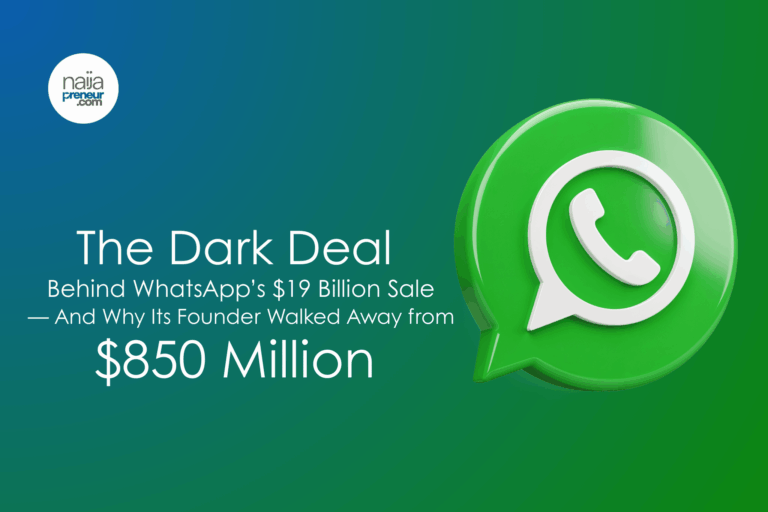In 2014, Facebook made headlines by acquiring WhatsApp for a staggering $19 billion—the largest tech acquisition at the time. But beneath the surface of Silicon Valley’s biggest handshake was a brewing conflict, a clash of values that would later expose Facebook’s troubling intentions for user data—and push WhatsApp’s co-founder to walk away from $850 million.
Here’s the untold story of Brian Acton, Jan Koum, and how a platform built to protect privacy became one of the biggest surveillance tools ever made.
The Rejection That Sparked a Revolution
Years before the acquisition, Brian Acton had applied for a job at Facebook—and was rejected. Brushing off the denial, he tweeted:
“Looking forward to life’s next adventure.”
That “adventure” came in the form of WhatsApp, a private, ad-free messaging app he co-founded with Jan Koum. Their mission was radical for the time: no ads, no games, no gimmicks—and most importantly, no data harvesting.
The pair had quit their jobs at Yahoo disillusioned by the ad-driven internet, and were determined not to repeat its mistakes.
They worked on cheap IKEA desks, wrapped themselves in blankets to cut heating costs, and refused to raise funds from investors who demanded intrusive monetization strategies.
Their revenue model? A symbolic $1 per year subscription fee—which they barely enforced. If users didn’t pay, they were often allowed to continue using the app anyway.
In the first 9 months, WhatsApp generated a mere $1.2 million in revenue.
But they were building something else—something far more valuable.
A Privacy-First App That Broke the Rules
In an age of surveillance capitalism, WhatsApp was an outlier. It didn’t sell ads, didn’t track users, and didn’t mine contact lists for profit. Instead, it grew the old-fashioned way—by being better than the competition.
And it worked.
Thanks to the power of the network effect, WhatsApp became more useful with each new user. That made it spread faster—and investors started noticing.
In a rare move, Sequoia Capital, one of Silicon Valley’s top VC firms, invested without demanding ads, monetization, or interference. They let the founders stay true to their vision.
By 2014, WhatsApp had over 450 million users—and Facebook was paying attention.
Facebook’s Panic — And the $19 Billion Offer
With Google circling WhatsApp for a possible acquisition, Mark Zuckerberg moved fast.
He extended an offer WhatsApp couldn’t refuse: $19 billion in cash and stock. For context:
-
Instagram had cost just $1 billion
-
WhatsApp was losing money
-
The $19B sum could fund 20 Mars missions
But Zuckerberg wasn’t buying profits—he was buying data.
WhatsApp’s massive user base represented a goldmine:
-
Phone numbers, which could be matched to Facebook profiles
-
Contact lists, giving access to users’ social graphs
-
A direct bridge between users’ offline identity and online activity
Zuckerberg promised the founders that WhatsApp would remain independent, with its privacy-first mission intact.
But that promise wouldn’t last.
The Betrayal of WhatsApp’s Values
In 2016, Facebook quietly removed the $1 annual fee, a move that signaled the beginning of deeper integration.
By 2017, Facebook began sharing WhatsApp data with its own advertising systems—despite earlier claims that doing so was “technically impossible.”
The goal? Ad targeting. Facebook wanted to map phone numbers to Facebook accounts to serve hyper-targeted ads.
When Brian Acton discovered the real plan, he pushed back. Facebook execs pressured him to find a “monetization strategy” for WhatsApp—one that involved violating the platform’s founding values.
Rather than comply, Acton quit. But walking away came at a price: $850 million in unvested stock.
From Founder to Rebel
After leaving Facebook, Acton stunned the world.
He invested $50 million into Signal, an encrypted messaging app that directly rivaled WhatsApp—and reflected the very values Facebook had betrayed.
His message was loud and clear:
“I am David going against the Goliath I created.”
He later tweeted:
“It’s time. #DeleteFacebook”
His co-founder, Jan Koum, left soon after—reportedly because Facebook tried to weaken WhatsApp’s end-to-end encryption.
In a rare moment of public reflection, Acton later admitted:
“I sold my users’ privacy. I live with that every day.”
What WhatsApp Shares with Facebook Today
Once a champion of digital privacy, WhatsApp today shares vast amounts of user data with its parent company, including:
-
Phone numbers
-
Profile photos
-
Status updates
-
Contact lists
-
IP addresses
-
Location data
What began as a privacy-focused alternative to SMS became one of the most powerful data collection platforms in the world.
The Real Price of “Free”
The WhatsApp saga is more than just a business story. It’s a cautionary tale about how the most valuable currency in the digital age isn’t money—it’s your data.
If you’re not paying for the product, you are the product.
WhatsApp’s founders built a platform to protect people’s privacy. Then they watched it become a tool for monetizing it. And even with billions in the bank, the real cost was personal.
Sometimes, the highest price isn’t what you pay—
It’s what you give up.


